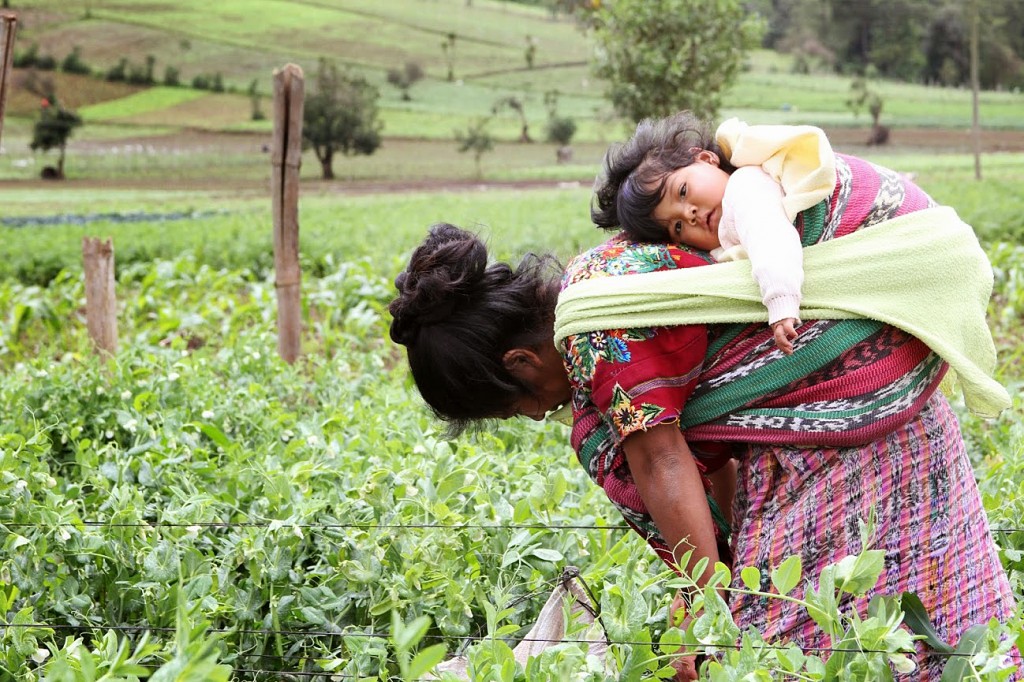
MALNUTRITION IN A LAND OF PLENTY
Guatemala has some of the most fertile farmland in the Americas, but most of the healthy produce grown here ends up on supermarket shelves in the U.S. and other wealthy countries rather than on the tables of the farmers who grow it. The result is a startling prevalence of malnutrition in a land rich in agricultural resources.
Pulitzer Center grantee Roger Thurow, along with PBS NewsHour's Hari Sreenivasan and Jason Kane, traveled to Guatemala to document the effects of hunger in a land of plenty. They found that roughly half the children in this nation of 15 million are "stunted" because of malnutrition. These children are marked by slow growth, poor school performance and, later in life, lower economic productivity—a dreadful waste of the nation's human capital.
Guatemala is one of several places where Roger is looking at the critical importance of the 1,000-day period from the beginning of pregnancy to a child's second birthday that determines the future prospects not only of that individual child but also of society as a whole.
THE TROUBLE WITH ISIS
A few months ago, not many Americans had heard of ISIS—the Islamic State of Iraq and Syria. Today, the radical jihadist group has emerged as a major force in the region, threatening the territorial integrity—and even the existence—of both Iraq and Syria. In two Pulitzer Center projects, grantees James Harkin and Jenna Krajeski take a look at the coming of age of an organization that was "too extreme" even for Al Qaeda.
James, who is investigating ISIS's recruitment tactics, reports on the recent kidnapping of 186 schoolboys in Syria. In his dispatch for The Guardian, James notes that incident "has gone largely unreported in the wider world, a curious omission given the outcry over the teenage girls in Nigeria."
The boys, aged 14 to 16, were traveling in a convoy of 10 minibuses on May 30 when they were abducted and taken to a religious school for training in the Qur'an and jihad. "The vast majority are still there," writes James.
Meanwhile, Jenna, with pieces in both The Nation and Foreign Policy, looks at how the fracturing of Iraq by ISIS might play out for the country's Kurds, whose semi-autonomous territory has been one of the few havens of stability in the region.
Writing from Kirkuk, a city recently abandoned by Iraq's mostly Shiite army, Jenna writes that in a country whose ethnic and religious divides are exploding into the forefront, this city is unique—locals are intertwined, and many speak Arabic, Turkmen and Kurdish. The locals Jenna spoke with "professed an adamance that the city's diversity was its hallmark." Less certain is how long this tolerance will last if Iraq does break apart.
ENDANGERED PLANET
Projects focused on the environment are very much a priority at the Pulitzer Center, as some of the recent work of our grantees demonstrates. Journalist He Guangwei, in the first of a multi-part series for Yale Environment 360 and China Dialogue, looks at how decades of rapid industrial development have poisoned China's soil and endangered the food cycle.
Meanwhile, grantee Chris Berdik, Pulitzer Center senior producer Steve Sapienza and PBS NewsHour correspondant Hari Sreenivasan continued their examination of threats to Cambodia's Lake Tonle Sap in a report for the PBS NewsHour, and grantee Sean Gallagher, at work on a long-term project about the growing threat of India's e-waste, filed this dispatch for National Geographic.
Until next week,
Tom Hundley
Senior Editor






